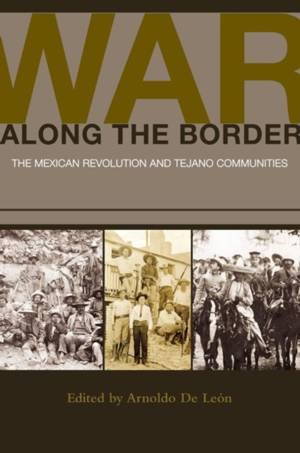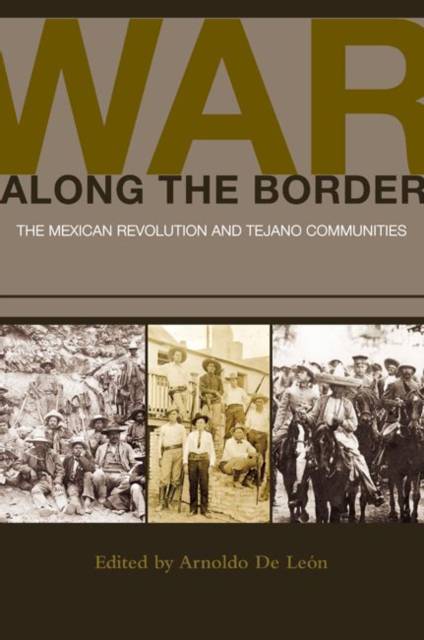
- Afhalen na 1 uur in een winkel met voorraad
- Gratis thuislevering in België
- Ruim aanbod met 7 miljoen producten
- Afhalen na 1 uur in een winkel met voorraad
- Gratis thuislevering in België
- Ruim aanbod met 7 miljoen producten
War Along the Border
The Mexican Revolution and Tejano Communities
Omschrijving
In 1910 Francisco Madero, in exile in San Antonio, Texas, launched a revolution that changed the face of Mexico. The conflict also unleashed violence and instigated political actions that kept that nation unsettled for more than a decade. As in other major uprisings around the world, the revolution's effects were not contained within the borders of the embattled country. Indeed, the Mexican Revolution touched communities on the Texas side of the Rio Grande from Brownsville to El Paso. Fleeing refugees swelled the populations of South Texas towns and villages and introduced nationalist activity as exiles and refugees sought to extend moral, financial, and even military aid to those they supported in Mexico. Raiders from Mexico clashed with Texas ranchers over livestock and property, and bystanders as well as partisans died in the conflict.
One hundred years later, Mexico celebrated the memory of the revolution, and scholars in Mexico and the United States sought to understand the effects of the violence on their own communities. War along the Border, edited by noted Tejano scholar Arnoldo De León, is the result of an important conference hosted by the University of Houston's Center for Mexican American Studies.
Scholars contributing to this volume consider topics ranging from the effects of the Mexican Revolution on Tejano and African American communities to its impact on Texas' economy and agriculture. Other essays consider the ways that Mexican Americans north of the border affected the course of the revolution itself. The work collected in this important book not only recaps the scholarship done to date but also suggests fruitful lines for future inquiry. War along the Border suggests new ways of looking at a watershed moment in Mexican American history and reaffirms the trans-national scope of Texas history.
Specificaties
Betrokkenen
- Uitgeverij:
Inhoud
- Aantal bladzijden:
- 345
- Taal:
- Engels
- Reeks:
- Reeksnummer:
- nr. 6
Eigenschappen
- Productcode (EAN):
- 9781603445245
- Verschijningsdatum:
- 13/01/2012
- Uitvoering:
- Hardcover
- Formaat:
- Genaaid
- Afmetingen:
- 160 mm x 234 mm
- Gewicht:
- 657 g

Alleen bij Standaard Boekhandel
Beoordelingen
We publiceren alleen reviews die voldoen aan de voorwaarden voor reviews. Bekijk onze voorwaarden voor reviews.











